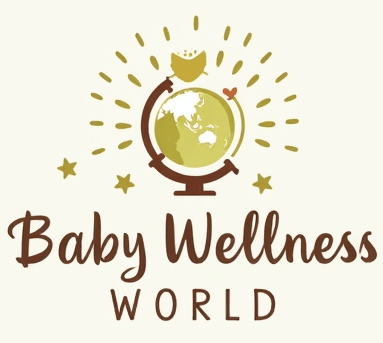Motherhood is an incredible journey filled with joy, love, and fulfillment. Yet, the reality is that many moms find themselves caught in an exhausting cycle of physical and emotional fatigue. If you’re a tired mom, pushing through your days while feeling utterly drained, know that you are not alone. The transition into motherhood often comes with unforeseen challenges, leaving many mothers wondering why it feels harder than expected. To navigate this phase and reclaim your energy, it’s vital to identify the key factors behind exhaustion and implement practical solutions that nurture your well-being while fostering independence and resilience in your children.
1. Physical Exhaustion: Understanding and Managing the Toll on Your Body
The physical demands of motherhood are relentless, from sleepless nights with newborns to chasing after active toddlers. Add household responsibilities, work stress, or errands to the mix, and it’s no wonder moms often feel like they’re running on empty. The chronic lack of rest not only drains energy but can also weaken your immune system and affect mental clarity.
Practical Solutions
- Prioritize Sleep: Sleep may feel like a luxury, but even a short nap during the day can recharge your energy levels.
- Delegate Tasks: Share responsibilities with your partner, family, or close friends. Remember, asking for help is a strength, not a weakness.
- Fuel Your Body: Balanced, nutrient-rich meals and adequate hydration are essential for maintaining energy levels. Incorporate energy-boosting foods like nuts, whole grains, and leafy greens.
2. Mental and Emotional Burnout: Navigating the Invisible Load
The emotional and mental responsibilities of motherhood often go unnoticed but can weigh heavily on moms. Known as the “invisible load,” this includes scheduling doctor appointments, remembering special dates, monitoring developmental milestones, and managing family dynamics. Over time, these seemingly small tasks accumulate and lead to mental burnout.
Practical Solutions
- Set Realistic Expectations: Avoid striving for perfection. It’s okay to let go of tasks that aren’t urgent or necessary.
- Establish Boundaries: Teach your children the value of independent play. Allowing them to explore their creativity without your constant involvement gives you necessary downtime.
- Practice Mindfulness: Dedicate even 10 minutes a day to mindfulness exercises. Deep breathing or quick meditation sessions can help clear your mental clutter.
3. Social Isolation: Breaking Free from the Loneliness of Motherhood
Motherhood can sometimes feel isolating, especially for new moms or moms in nuclear family setups. Spending most of your time caring for your child without adult interaction can lead to feelings of loneliness, making the journey even more challenging. Social connectivity is vital, and nurturing relationships outside your home can make a world of difference.
Practical Solutions
- Build a Support Network: Join local parenting groups or online forums to connect with other moms who share similar experiences.
- Plan Social Outings: Schedule meetups with friends or family, even if it’s just grabbing coffee or going for a walk.
- Consider Therapy: Speaking to a counselor can provide valuable insights and coping mechanisms to overcome isolation.
4. Loss of Identity: Rediscovering Yourself Beyond Motherhood
Amid the demands of parenting, many moms struggle with a sense of lost identity. It’s easy to put your personal ambitions, passions, and hobbies on hold while prioritizing your family. However, reclaiming your individuality is crucial to finding joy and balance in motherhood.
Practical Solutions
- Carve Out “Me Time”: Dedicate time each day or week to activities that bring you happiness, whether it’s reading, painting, or pursuing fitness goals.
- Reconnect with Old Passions: Think about hobbies or interests you enjoyed before becoming a mom and find ways to incorporate them into your routine.
- Set Personal Goals: Whether it’s career development, learning a new skill, or traveling, having goals outside of motherhood can help you maintain a sense of self.
Why Empowerment Through Independence Is Key
A significant aspect of reducing exhaustion lies in teaching your children to be independent. Not only does this alleviate some of your responsibilities, but it also instills essential life skills in your kids. By fostering independence, you empower your children to think critically, solve problems, and manage their emotions effectively—qualities that will benefit them throughout life.
Steps to Encourage Independence:
- Start Small: Assign age-appropriate chores, such as tidying toys or helping with meal preparations.
- Allow Decision-Making: Let your child make simple choices, such as picking their clothes or selecting a snack.
- Encourage Problem-Solving: Provide guidance but allow them to work through small challenges on their own.
Key Takeaways
- Physical Rest Is Essential: Prioritize sleep and nourishment to maintain energy levels.
- Mind Your Mental Health: Balance responsibilities and practice mindfulness to avoid burnout.
- Social Connection Matters: Surround yourself with a supportive network to combat isolation.
- Reclaim Your Identity: Rediscover what makes you happy beyond being a mom.
- Foster Independence: Empower your children by involving them in age-appropriate responsibilities.
FAQs
1. How can I manage my time better as a busy mom?
Use tools like planners or mobile apps to organize your day. Prioritize tasks and delegate wherever possible. Breaking the day into manageable chunks can make it less overwhelming.
2. How do I deal with the guilt of asking for help?
Understand that asking for help benefits both you and your family. A rested and happy mom is better equipped to care for her children, so embrace support without guilt.
3. What should I do if I feel emotionally disconnected from my children?
Focus on small moments of connection, such as bedtime stories, shared meals, or playing games together. Quality time matters more than quantity, so make those moments meaningful.
Motherhood may feel overwhelming at times, but implementing these practical strategies can help you find balance and reclaim your strength. By addressing your needs and fostering independence in your children, you can empower yourself and your family, creating a more joyful, sustainable parenting journey. Remember, you’re not alone—every mother deserves support and the opportunity to thrive!










